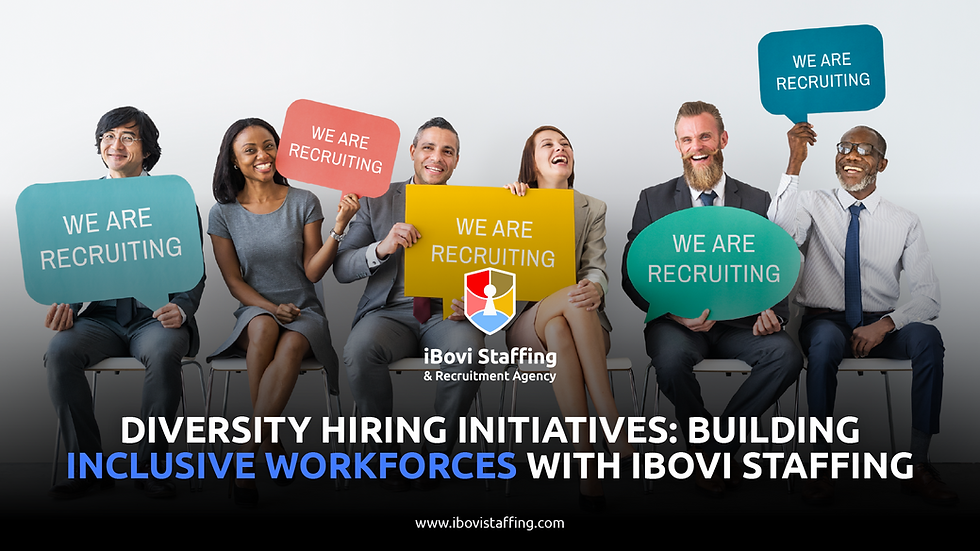Navigating Career Transitions: Tips for Job Seekers Changing Industries
- Arnim Sharma

- May 8, 2024
- 5 min read
Updated: Feb 27, 2025

Table of Contents:
Introduction
Transitioning to a new industry can be daunting, but with the right strategies, you can navigate this change successfully. This article provides comprehensive tips for job seekers looking to switch industries, from identifying strengths to bridging the gap for a successful transition.
Identify Your Strengths and Opportunities
Self-Assessment
Before making a career transition, you must understand what career you would be able to smoothly transition to. The career you are in right now is not suiting you? Great that you have identified the need to make a switch. But that's just the first step! The next step is to do a self-assessment.
Conduct a thorough self-assessment to identify your skills, values, and interests.
Use tools like SWOT analysis to understand your strengths, weaknesses, opportunities, and threats.
Consider seeking feedback from mentors or career counselors to gain a better understanding of your capabilities.
Research and Analysis
Once you have identified your strong points, skills and what field interests you the most, the next step is to find out what kind of industries have that kind of job roles that would interest you. You need to start with:
Research industries that align with your strengths and interests.
Analyze job descriptions to identify skills and experiences that are transferable to your desired industry.
Explore online resources and professional networks to learn about emerging trends and future opportunities.
Skill Development
Now, for some of these job roles, you might feel that you are a little underqualified because you don't have a prior experience in the industry. Don't worry, there are various ways to gain entry into the field. You can invest in a little bit of skill development by learning. Here's how you can do that:
Invest in skill development programs or certifications to enhance your qualifications.
Consider volunteering or freelancing in your target industry to gain hands-on experience.
Attend workshops, seminars, and networking events to stay updated with industry trends.

Understanding Trends and Requirements for Career Transitions
Industry Research: Research industry trends, market demands, and future projections. You can also subscribe to industry publications and newsletters to stay informed. Use professional networking platforms to connect with industry experts and gain insights.
Skill Matching: Identify skills that are in high demand in your target industry. Tailor your resume and cover letter to highlight these skills. Showcase your ability to adapt and learn new skills quickly.
Adaptability: Demonstrate your willingness to adapt to new environments and challenges. Highlight experiences where you successfully navigated change or learned new skills. Emphasize your ability to thrive in dynamic and evolving industries.
Building Connections and Leveraging Resources
Networking
Networking involves building relationships with professionals in your industry or desired field. This can help you learn about job opportunities, industry trends, and best practices. Networking can be done through various means:
Building a Strong Professional Network: This involves connecting with professionals in your target industry through platforms like LinkedIn. You can reach out to individuals for informational interviews, advice, or to simply build a connection.
Attending Industry Events: Industry events such as conferences, seminars, and networking mixers provide opportunities to meet key players in your industry. These events often feature presentations, panels, and workshops where you can learn from industry leaders and make valuable connections.
Using Social Media: Platforms like LinkedIn can be powerful tools for networking. You can join industry-specific groups, participate in discussions, and connect with professionals who share your interests. Building a strong online presence can help you showcase your skills and expertise to potential employers or collaborators.
Mentorship
Mentorship involves seeking guidance and advice from experienced professionals who have successfully transitioned into your target industry. A mentor can provide valuable insights, help you navigate challenges, and offer support as you transition your career. Here's how you can leverage mentorship:
Seeking Mentorship: Identify professionals in your industry whom you admire and respect. Reach out to them and express your interest in receiving mentorship. Be clear about what you hope to gain from the mentorship and how you believe it can benefit both parties.
Learning from Experiences: A mentor can share their experiences and lessons learned from their own career transitions. Listen attentively, ask questions, and be open to learning from their successes and failures.
Joining Professional Associations: Professional associations or groups related to your target industry can provide valuable networking opportunities and access to mentorship programs. Consider joining these associations to connect with experienced professionals and expand your network.
Online Resources
Online resources can be valuable tools for career transition, offering access to job boards, forums, and learning platforms. Here's how you can leverage online resources:
Job Boards: Use job boards to search for job opportunities in your target industry. Tailor your resume and cover letter to match the job requirements and showcase your relevant skills and experiences.
Forums and Communities: Join online forums and communities related to your target industry. Engage in discussions, ask questions, and share your insights. These platforms can help you stay updated with industry news and trends and connect with like-minded professionals.
Online Learning Platforms: Enhance your skills and qualifications by taking online courses or certifications. Platforms like Coursera, Udemy, and LinkedIn Learning offer a wide range of courses in various industries. Investing in continuous learning can make you more attractive to potential employers and help you stay competitive in your field.
Highlighting Relevant Experience and Skills
Resume Writing
Tailor your resume to highlight relevant experiences and skills.
Use keywords and phrases that are specific to your target industry.
Quantify your achievements to demonstrate your impact and effectiveness.
Cover Letter
Write a compelling cover letter that showcases your passion for the industry.
Highlight specific experiences or skills that are relevant to the job.
Use the cover letter to explain your career transition and why you are a strong candidate for the role.
Portfolio Development
Develop a portfolio that showcases your work and achievements.
Include projects or experiences that demonstrate your skills and expertise in your target industry.
Use your portfolio to differentiate yourself from other candidates and highlight your unique strengths.
Bridging the Gap for a Successful Transition
Continuous Learning: Emphasize your commitment to continuous learning and professional development. Highlight any courses, certifications, or workshops you have completed. Demonstrate your willingness to adapt and grow in your new industry.
Transferable Skills: Identify transferable skills from your previous experiences that are relevant to your new industry. Showcase these skills in your resume, cover letter, and interviews. Explain how these skills will benefit your new role and contribute to your success in the industry.
Networking and Mentorship: Continue to build your professional network and seek mentorship in your new industry. Attend industry events, conferences, and seminars to meet new contacts. Use mentorship opportunities to gain insights and advice from experienced professionals.
FAQs
1. How do I know if changing industries is the right move for me?
Changing industries can be a big decision. Consider factors such as your long-term career goals, passion for the new industry, and potential for growth and advancement.
2. How can I make my resume stand out when changing industries?
Tailor your resume to highlight transferable skills and experiences relevant to the new industry. Use keywords and phrases specific to the industry to grab the attention of recruiters.
3. What should I include in my cover letter when applying for a job in a new industry?
Use your cover letter to explain your motivation for changing industries and why you are a strong candidate for the role. Highlight relevant experiences and skills that make you a good fit for the position.
4. What skills are most important when changing industries?
Transferable skills such as communication, problem-solving, and adaptability are essential when changing industries. Highlight these skills in your resume and cover letter to demonstrate your suitability for the new role.




Comments